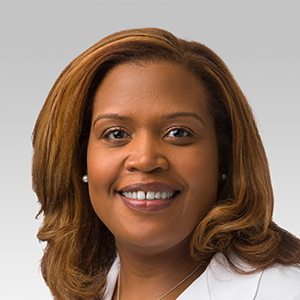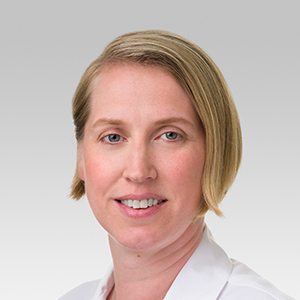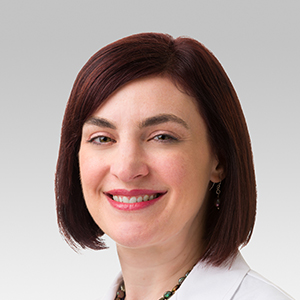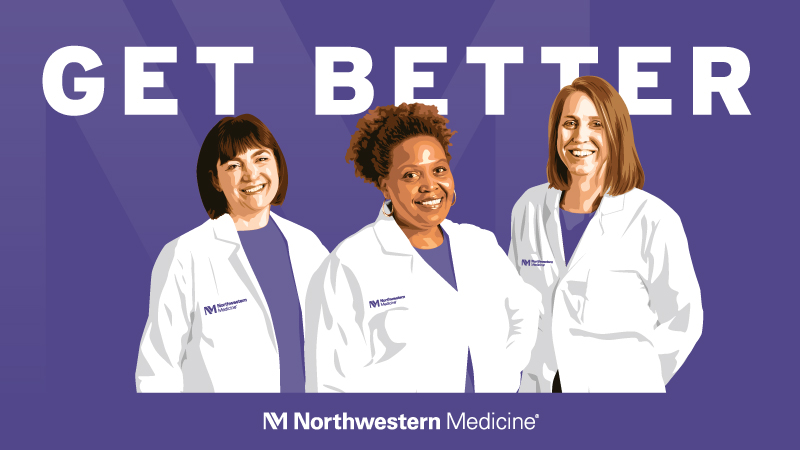SEASON 1 EPISODE 10
Get Help: Collaborative Care for Depression [Podcast]
Symptoms and Treatment for Depression
Published May 2022
About this Episode
Are you feeling "off" or do you have clinical depression? A Northwestern Medicine Psychiatrist discusses depression symptoms and treatment.
Featured Guest Experts
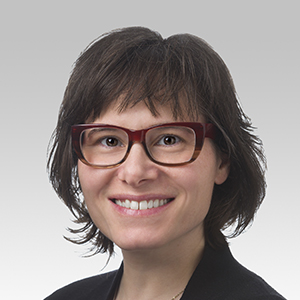
About the Get Better Podcast
Living a healthier life is a journey with no final destination: You can always get better.Susan Russell, MD, Khalilah Gates, MD, and Michelle Prickett, MD, are three pulmonologists at Northwestern Medicine who help people get better from critical illnesses. They are also lifelong friends and lifelong learners who want to get better from head to toe.
These three physicians will learn alongside you as they interview other Northwestern Medicine experts about health and medicine topics meant to help you achieve better health.
Transcript
Russell [00:00:02] Let's get stronger.
Gates [00:00:04] Healthier.
Prickett [00:00:05] Calmer.
Russell [00:00:05] Smarter.
Gates [00:00:06] Better.
Russell [00:00:08] Living a healthier life is a journey, not a destination.
Gates [00:00:10] You can always get better.
Prickett [00:00:12] Let's get better together.
Russell [00:00:20] So why did we pick this topic? Why do we want to talk about depression?
Prickett [00:00:24] I think it's really easy to think about all other medicine, but not really shine a spotlight on mental health. It is so important, but we always try to. You know, we're ICU doctors, we focus on the breathing, the hearts, like, all that. But mental health is so entwined and so important. And COVID just shone a spotlight on how important it is to think about us as whole people. And part of that is addressing our mood, and with that is depression. And I think you can lump anxiety in there as well and really normalizing it and kind of being honest. I think I am grateful for you ladies, for the ability to be honest, and share and do it in a method that is supportive and feels like you're not alone. I don't directly care for depression or it's not something I manage. So this is an area that I really want to know more about, what the options are, how we can address it, and just be open and honest and make ourselves and our listeners know that they're not alone there and there's ways that we can approach this together.
Russell [00:01:32] I feel like a lot of people feel like mental health is completely separate from what's going on with the rest of their body, and that's not the case.
Gates [00:01:41] So to both of your points. I think that as providers, we need to become more comfortable and familiar with the effects of mental health, depression and anxiety on the things that we see. How do we acknowledge and help to treat our patients who may also be suffering from these illnesses?
Prickett [00:02:01] We certainly see it in clinic. It's not our main specialty, but we see it in the clinic, we see it in the ICU. And to me, it's acknowledging it, shining a light on it, and knowing what to do if things come up that we can't handle, that there's folks out there that have the expertise and can lead us down that pathway.
Russell [00:02:19] All right. Let's dive in. 264 million people worldwide live with depression. Yet many of those people are not getting the treatment they need because depression can be hard to diagnose. Hi, I'm Dr. Susan Russell. We're here with Dr. Lisa Rosenthal, who is a Northwestern medicine psychiatrist. Dr. Rosenthal is the chief of the Division of Consultations, Psychiatry and associate vice chair for Clinical Affairs in the Department of Psychiatry and Behavioral Sciences at Northwestern Medicine Feinberg School of Medicine. Today, we're going to talk about addressing mood with collaborative and integrated forms of psychiatry, something that has certainly been on the rise since the pandemic started. Welcome, Dr. Rosenthal.
Rosenthal [00:03:10] I'm so thrilled to be here. Thank you for inviting me.
Russell [00:03:13] We're incredibly thrilled to be talking to you.
Russell [00:03:15] So I understand that you're a very unique type of psychiatrist. Tell me about what you do.
Rosenthal [00:03:20] We are psychiatrists who practice everywhere except traditional psychiatric places. We are called consultation liaison psychiatry. Then, we focus on patients with comorbid conditions, such as medical problems. So, we do things like consultations inside of hospitals, collaborative care in other types of clinic, and integrate ourselves into transplant and oncology and cardiac subspecialty clinics.
Russell [00:03:50] You and Michelle have kind of a special connection through that as well.
Prickett [00:03:54] We have worked together through our cystic fibrosis clinic, so that's actually how I met Lisa and brought her in and said, “Let's come talk about depression.” Given everything that's been going on with COVID, and all the things I think are really going to be helpful for our listeners.
Russell [00:04:07] What is collaborative and integrated care for mental health? Because that just sounds like a mouthful to me.
Rosenthal [00:04:13] Collaborative care is a very unique model based on population health, as well as other models of chronic disease, just like hypertension. So I'll give you an example. People don't show up at a clinic saying, “HI, I have hypertension”" We screen everybody who shows up at our clinics. We don't do the same thing with psychiatric conditions traditionally, and there's no reason we shouldn't. Right? People don't always show up saying, “Hey, I have depression,” or “I have anxiety.” And in traditional models, we have waited for patients to say that, or we've waited for doctors to make a judgment call and bring it up with the patient. In the collaborative care model, we screen the whole population and look for those who are positive. This really diminishes bias. It also finds lots of patients who would not normally have presented on their own.
Russell [00:05:06] I can see all the connections, just with all the other diseases that we take care of that are multidisciplinary, like heart failure and all sorts of autoimmune diseases. And I can see how there'd be a lot of implications for this. How do you pick what setting is right for integrated practice with depression?
Rosenthal [00:05:26] The places that collaborative care has been tested in are multiplying, but the first place it worked well was primary care. And we know that our primary care colleagues are actually the main providers of mental health care in the United States. We know that they need assistance and are the main prescribers of anti-depressants and other medications. And so it makes perfect sense to go where we are most needed.
Russell [00:05:55] What are the symptoms of depression that you look out for, and that, maybe, people should look for in themselves or their loved ones?
Rosenthal [00:06:02] Depression is really a big umbrella term that sometimes becomes meaningless and encompasses any kind of unhappiness, or what I like to call dysphoria. You know, you don't feel good. And people will say, “Well, I'm depressed.” Not all dysphoria is obviously a psychiatric illness or major depressive disorder. And the things that make me really pay attention are some of the criteria for the diagnosis of major depressive disorder. And those criteria include pretty serious symptoms. So, we look at severity, we look at how long the person has had these symptoms, and whether it's, you know, a few days or hours versus weeks to months and whether it's recurred throughout the lifetime. Also important is, do they have impairment in their functioning? And are symptoms bothering them? Right? So it has to impact them or their functioning and the people around them for us to consider it a psychiatric disease that needs treatment. I should also say that, of course, we look for very severe symptoms, such as feeling worthless, wishing for death or feeling suicidal, having psychotic symptoms, or really just being so slowed, or unable to function that you're not taking care of yourself. Those would be considered really an emergency. Some really important symptoms include self-esteem, sense of self-efficacy, meaning how well you're functioning and whether you are useful in the world. Another symptom that we call anhedonia, and that's a big word that basically means ability to enjoy life. And many people with severe depression stop being able to enjoy things the way they used to. And that's a very important symptom, as well as always asking people about suicidality and people start — guilt is a is a very broad term — but when people start feeling like they're not a good person, or that they deserve to not feel well or be punished, I get quite worried.
Russell [00:08:10] We seem to be very good at helping patients manage chronic conditions like high blood pressure, diabetes, asthma. But why is it more challenging to treat people with depression?
Rosenthal [00:08:21] Well, I think the answer to that is so broad, because part of it has to do with stigma. Part of it has to do with how we've carved out psychiatric treatment from other types of medical care, but also because we, in psychiatry, have been a little bit slower to embrace what's called the chronic disease model. And this is a model that really started being studied in the 1990s. And it's the idea that we have to look at and manage chronic diseases like hypertension and diabetes, and screen populations and treat people until they're better or well-managed. It's not that we diagnose it and say, “Here's a pill,” and then you forget about it. So it's psychiatry. We've really just started screening populations for symptoms and being more proactive about diagnosis, as well as managing symptoms until they're in remission. So the idea of recovery is becoming more and more powerful in psychiatry, and we really do want people to recover from psychiatric conditions. And I, as a psychiatrist, heartily believe that that's possible. And it is a challenge to treat depression, and other psychiatric illnesses are sometimes very expensive and time consuming. The one other thing I'll say is that we do know primary care doctors treat an awful lot of depression and anxiety, and while, in general, they're pretty darn good at it, they don't always use the same methods that a psychiatrist would use, such as higher doses of medication and very careful follow up to see if patients are actually improving or whether they need to change treatment because only about a third of patients get well with their first medication trial.
Russell [00:09:59] You mentioned the word remission. Does that mean depression is more of an active versus inactive state or can you actually be cured?
Rosenthal [00:10:07] There is some data to suggest that if you've had more than 2 episodes of major depressive disorder in your lifetime, that your chances of recurrence are fairly high and maybe even as high as 90%. That said, many people have one episode of severe depression in their lifetime, and we can absolutely treat that and it doesn't recur. And there's ways to minimize the risk of recurrence. Some people need medications, but of course, there's many different types of treatment for psychiatric disorders. And therapy is one that's particularly been demonstrated to help prevent relapse.
Prickett [00:10:43] I think the pandemic has really shined a light at the importance of mental health and brought the issues to the forefront. And what I've always appreciated is that the team-based approach, and it allows us to have that relationship and screen patients routinely, but also that relationship of saying, “Hey, things sound different. How are things going with the pandemic?” We can really check in with our patients.
Russell [00:11:03] I know in the healthcare setting, it's really been a big toll on health care providers in general. And a lot of us have expressed unhappiness, just at social isolation and, kind of, the lack of being able to do things outside of work. But depression is more than just unhappiness. So what tips you across the streams from unhappiness? When does it become a disease, and at what point do you need treatment for feeling stressed or down? Despite knowing that there's variability day-to-day and mood.
Rosenthal [00:11:33] Not all unhappiness is a mental illness. And I saw a headline a few weeks ago, and I can't remember it exactly, but it was saying something along the lines of 10% to 50% of refugees from the war in Ukraine have symptoms of post-traumatic stress disorder. As a psychiatrist, I have to say, well, if 50% of a population is experiencing something, that's actually the very definition of normal, which means that, not that they feel well, but that they are having a normal reaction to a horrifying situation. It is very important to separate real life, normal responses from something that is a psychiatric illness that needs treatment. So that's a very, very important thing, is that we're allowed to have negative emotions when life is really terrible or even when life isn't really terrible, when bad stuff happens. The second thing I would stress is that psychiatric conditions are often both over-diagnosed and underdiagnosed at the same time. This is really sort of complicated, right? I know that there are patients out there with very severe depression who have never been diagnosed and would benefit immensely from treatment. And the same is true for a lot of psychiatric syndromes — all kinds of anxiety syndromes, psychosis, addiction treatment. We can't forget that we sometimes over call it, but we also under call it, that people are sick. Those are the things that I really want to stress, that we need to be mindful and screen a population because there are people who aren't diagnosed and that it can have a very profound effect on their health more globally.
Russell [00:13:17] Are there specific populations that you think are particularly in need of assessment and treatment for depression?
Rosenthal [00:13:25] That's a hard one, right? Because symptoms of depression go hand in hand with all types of psychosocial suffering. Right. So communities with poverty and high levels of violence and addiction, absolutely. We need to be out there doing more screening and discussing about the reaction. On the other hand, we also need to be doing a lot more to prevent these problems. This isn't just city communities. This is also rural America right now and includes many people who have been impacted by the pandemic as well, financially and in other ways. I mean, we can't forget how many people have lost their lives and how many people are now coping with the loss of a loved one or a parent or a child.
Russell [00:14:09] How do psychiatric symptoms have an impact on other types of diseases? You were mentioning integrating care in the context of cystic fibrosis, but I know there are other diseases as well that can be very impacted by depression.
Rosenthal [00:14:24] Well, there's more and more data that depressive symptoms impact health outcomes across the board. And specifically, it's been demonstrated in cardiovascular disease and cancer, as well as many others. So just this sense of dysphoria, I don't even know yet if it's major depressive disorder, but people who screened positive for depression seem to have poorer health outcomes, and that includes both, kind of, level of suffering, disease course and death. And why that is is still quite a mystery. But we are trying very hard to determine whether treatment of depression and mood disorders and anxiety can also improve other health outcomes. And there is a little bit of data that it does. There's a few, what are called negative studies, meaning that we treated depression and people did not have better health outcomes. But there are also studies suggesting that they do get better, both from depression, as well as things like diabetes and high blood pressure, have better outcomes when we treat depression. You know that the idea is very holistic, right? It's probably goes in both directions. First, that physical illness can make you feel awful and unhappy and bad and lower your energy and your mood, and that depressive symptoms can also impact your wellness and that your sense of your body, as well as your — for some people — their ability to take care of certain chronic diseases. So we want to really focus on those, every possible aspect of the whole person that impacts health outcomes.
Russell [00:16:12] Yeah, I can see how it would be a vicious cycle. Like, you feel bad because you have diabetes and your blood sugars aren't controlled, so you don't feel good, you don't really care. Maybe you miss a dose or 2 of your medication. Your blood sugars are higher, you feel even worse, you care less, you feel more depressed. You miss another dose, and I can see how it would have a snowball effect over time.
Prickett [00:16:36] And I think chronic conditions are just that they're chronic, they don't go away. And so a lot of it, my patients will tell me, it's like, it's just, it's always going to be there. And that weighs heavy on them, and it impacts their mood and therefore can lead to higher rates of depression and anxiety. And so, I think just the chronicity of having an illness, even if it's well controlled, has its good days and bad days. Switching gears a little bit, what are some of the biases that you know in the mental health, specifically on depression? How can we open that door, shine some light, let people know that this is something that can affect everyone, and there are things that we can do to help recognize it and treat it, if we do find it.
Rosenthal [00:17:15] Language makes a big difference, so if you say, “I'm going to ask you a few questions about wellness,” as opposed to, “I'm going to screen you for depression,” language makes a big difference. But of course, there is stigma on so many levels about psychiatry, psychiatrists, our patients, our medicines in general. There is a very long history that psychiatric illnesses and the people who suffer from them are less than, or different from, we’re scary. And some of these are culturally bound ideas and historically based and, frankly, very often totally inaccurate.
Russell [00:17:55] So, Lisa, what else do you want listeners to know? What can we do as a person on the street, maybe even not as a health care provider, to look out for depression? And what other things do you want us to know about your practice?
Rosenthal [00:18:07] Well, of course, I love psychiatry, and I want everybody to know that what we do is no different than what a cardiologist does, right? That I screen for diseases. I have evidence-based treatments for them. And I rely a lot on colleagues who do psychotherapies as well as medication management. And I think that psychiatry is a unique profession because it's really based on relationships. And relationships can be healing. And I think that not everybody needs a psychiatrist to have a healing relationship, although it can be. There's lots of things you can do to improve your mood in your health that are not Prozac, including exercise, right? Exercise 30 minutes, 3 times a week has been demonstrated almost as effective as an antidepressant for mild mood symptoms. And how empowering could that be? More meaningful interactions, more volunteering, more feeling that you are good at things. So the psychologists like to say that there are really two keys to happiness and one of them is pleasure in life, right? You have to do things that you find fun and enjoyable. But more complicated than that is that you have to do meaningful activities, and I think people sometimes are less likely to focus on that. So those would be the things I would say is that we should be kind to one another and that we should be active with our communities and our colleagues and, you know, have conversations like this with awesome people that we know.
Russell [00:19:37] There you have it. Hug your psychiatrist.
Rosenthal [00:19:40] Please.
Russell [00:19:42] And get outside, see the sun, take a walk.
Prickett [00:19:46] And I think these conversations are really helpful. I think this podcast kind of came because of conversations for people. You know, Susan, Khaliliah and I stress and we're having conversations to support each other. And again, I think there's benefit to that. And that is just one method, though. If you need more. There's experts like Lisa out there and her colleagues to provide health, mental, physical or otherwise.
Russell [00:20:09] Well, thanks so much for being with us here today, Dr. Rosenthal. We really value your time and expertise.
Rosenthal [00:20:16] Well, thanks so much for having me. It's great fun, and I hope you'll invite me back someday.
Russell [00:20:24] Thanks for listening to Get Better.
Gates [00:20:26] We hope you'll leave this podcast better than when you started.
Prickett [00:20:30] For more information, visit NM.org/healthbeat.





